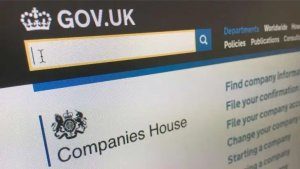- Corporate recovery, restructuring & insolvency
- Corporate

Longer Reads
Coronavirus – Company directors must remember their legal duties
Company directors will be trying to do everything they can to protect and preserve the business. However, they do still need to remember their legal duties, so as not to expose themselves to the risk of personal liability if their actions go beyond what the law allows.
4 minute read
Published 25 March 2020
Key information
- Specialisms
- Business
Companies are now faced with unprecedented challenges presented by the coronavirus pandemic. In this context, company directors will be trying to do everything they can to protect and preserve the business. However, they do still need to remember their legal duties, so as not to expose themselves to the risk of personal liability if their actions go beyond what the law allows.
Practical steps which directors should be taking now, as explained in more detail below include:
- meet regularly – daily, or even several times a day, as the situation changes very rapidly
- seek professional advice, if in any doubt as to what your director’s duties require
- remember that the company is a separate entity, so avoid mixing the assets or liabilities of different companies in the group (for larger businesses) or the assets of the company and the shareholders (for owner-managed businesses)
- seek professional advice, if the ongoing solvency of the company might be in doubt.
If you are concerned about what the law requires of you as a director or your personal liability risk, or you have fears that your company may become insolvent, Collyer Bristow’s Corporate recovery and restructuring team can help steer you through these difficult decisions.
We are offering clients up to thirty minutes free legal advice. We are here to answer any queries or concerns you might have regarding the impact of Covid-19, what legal options are available to you, and what steps you can take to protect your business, your staff, or your job.
Recommended practical steps:
Meet regularly
The running of the company is the responsibility of the board as a whole, so it is essential that decisions are taken collectively. This shares the burden, in these difficult times, and protects each director from taking risky unilateral decisions. We suggest a standing agenda including:
- Latest financial position of the company – ensure that up to date financial information is available to each director, and most particularly that you all understand the company’s cash position on a day to day business, in that your suppliers will expect to be paid and you will be expecting your customers to pay but neither of those things may be possible. Be realistic.
- Impact of recent announcements by government – as well as watching the news, consider subscribing to at least two professional services firms’ coronavirus resource sites (such as collyerbristow.com/coronavirus – and one accountancy) to get the analysis and practical application, and consider the applicability of these help schemes to your business. Remember, that the tax deferrals and government loans are not free gifts! They will have to be repaid at some time, so factor these into your balance sheets and cash flows.
- Employees – are they working effectively remotely? What further support might they need to do that? Can any be placed on furlough to take advantage of the government’s salary cover?
- Customers – can you still provide them with goods or services remotely? Are they able to pay? Good credit-control will be essential, but without undermining relationships you will need to sustain the business into the future.
- Suppliers – what threats are there to your receiving products or services you require? Are you able to pay for them? Rent holidays and business rate holidays may be available and we can advise on these, but again remember, this is just a deferral and not a waiver of your liability.
- Loans and facilities – are you in breach of the financial covenants in bank or other loan agreements or facilities? Will this cause cross-default in other similar arrangements? You should speak to your lender if there is a serious risk of default.
Almost all companies are allowed, under their Articles of Association, to hold meetings by telephone or videoconference. If directors are in different countries (whether willingly or due to travel restrictions), consider also the company’s tax residence. It may be appropriate to appoint additional local directors (if willing to act).
Keep minutes of these meetings. It’s always good practice, and may also protect you by showing your decision-making processes, if the company’s solvency is in doubt (more on this situation below).
Directors’ Statutory Duties
In all decision-making, remember the general statutory duty to promote success of the company for the benefit of the company’s shareholders as a whole, and the statutory factors which directors must take into account:
- the likely long term consequences of any decision;
- the interests of the company’s employees;
- the need to foster the company’s business relationships with suppliers, customers and others;
- the impact of the company’s operations on the community and the environment;
- the desirability of the company maintaining a reputation for high standards of business conduct; and
- the need to act fairly as between members of the company.
If you are in doubt as to what your duties require, or how to balance competing factors, seek professional advice. If you are worried that the company may be in financial difficulty the emphasis of directors duties shifts from being owed mainly to the company, to being owed to creditors, and at that point the directors must take every step with a view to minimising loss to creditors. We can give advice on this, and how it affects what you can and can’t, and should and shouldn’t, do as directors.
The company as a separate entity
It is a foundation of company law that each company has its own separate identity. It does not share in the assets belonging to other group companies, nor does it have a call upon the assets of its shareholders. On the other hand, it does not bear the liabilities of any other group companies.
Therefore, think very carefully if any proposal would involve one company supporting another (e.g. by intragroup loans, end-of-day cash-sweeping arrangements, giving cross-guarantees or security) or any shareholder guaranteeing the debts of the company.
Risk of insolvency
As we have discussed earlier, if the company is at risk of insolvency, the emphasis shifts from acting in the best interests of the shareholders to protecting the company’s creditors.
If a company goes into insolvent liquidation and the directors knew, or ought to have known, that there was no reasonable prospect that the company could avoid the liquidation, then the directors may be liable for ”wrongful trading” and obliged to make a personal contribution to the company’s assets for the benefit of its creditors. In light of the unique challenges posed by the Coronavirus “lockdown”, the government has announced a suspension of the wrongful trading penalties for directors, for three months, to allow them to continue to pay employees and suppliers (to have retroactive effect from 1 March 2020). Nevertheless, they emphasised that “all of the other checks and balances that help to ensure directors fulfil their duties properly will remain in force”.
Even more seriously, if a director is knowingly party to the carrying on of the company’s business with the intent to defraud its creditors, he commits the criminal offence of “fraudulent trading” punishable by a significant fine and/or imprisonment. This remains fully in force.
If you are in doubt as to whether your company has a realistic prospect of survival, we strongly recommend that you seek professional advice as soon as possible.
Related content
Longer Reads
Coronavirus – Company directors must remember their legal duties
Company directors will be trying to do everything they can to protect and preserve the business. However, they do still need to remember their legal duties, so as not to expose themselves to the risk of personal liability if their actions go beyond what the law allows.
Published 25 March 2020
Associated sectors / services
Authors
Companies are now faced with unprecedented challenges presented by the coronavirus pandemic. In this context, company directors will be trying to do everything they can to protect and preserve the business. However, they do still need to remember their legal duties, so as not to expose themselves to the risk of personal liability if their actions go beyond what the law allows.
Practical steps which directors should be taking now, as explained in more detail below include:
- meet regularly – daily, or even several times a day, as the situation changes very rapidly
- seek professional advice, if in any doubt as to what your director’s duties require
- remember that the company is a separate entity, so avoid mixing the assets or liabilities of different companies in the group (for larger businesses) or the assets of the company and the shareholders (for owner-managed businesses)
- seek professional advice, if the ongoing solvency of the company might be in doubt.
If you are concerned about what the law requires of you as a director or your personal liability risk, or you have fears that your company may become insolvent, Collyer Bristow’s Corporate recovery and restructuring team can help steer you through these difficult decisions.
We are offering clients up to thirty minutes free legal advice. We are here to answer any queries or concerns you might have regarding the impact of Covid-19, what legal options are available to you, and what steps you can take to protect your business, your staff, or your job.
Recommended practical steps:
Meet regularly
The running of the company is the responsibility of the board as a whole, so it is essential that decisions are taken collectively. This shares the burden, in these difficult times, and protects each director from taking risky unilateral decisions. We suggest a standing agenda including:
- Latest financial position of the company – ensure that up to date financial information is available to each director, and most particularly that you all understand the company’s cash position on a day to day business, in that your suppliers will expect to be paid and you will be expecting your customers to pay but neither of those things may be possible. Be realistic.
- Impact of recent announcements by government – as well as watching the news, consider subscribing to at least two professional services firms’ coronavirus resource sites (such as collyerbristow.com/coronavirus – and one accountancy) to get the analysis and practical application, and consider the applicability of these help schemes to your business. Remember, that the tax deferrals and government loans are not free gifts! They will have to be repaid at some time, so factor these into your balance sheets and cash flows.
- Employees – are they working effectively remotely? What further support might they need to do that? Can any be placed on furlough to take advantage of the government’s salary cover?
- Customers – can you still provide them with goods or services remotely? Are they able to pay? Good credit-control will be essential, but without undermining relationships you will need to sustain the business into the future.
- Suppliers – what threats are there to your receiving products or services you require? Are you able to pay for them? Rent holidays and business rate holidays may be available and we can advise on these, but again remember, this is just a deferral and not a waiver of your liability.
- Loans and facilities – are you in breach of the financial covenants in bank or other loan agreements or facilities? Will this cause cross-default in other similar arrangements? You should speak to your lender if there is a serious risk of default.
Almost all companies are allowed, under their Articles of Association, to hold meetings by telephone or videoconference. If directors are in different countries (whether willingly or due to travel restrictions), consider also the company’s tax residence. It may be appropriate to appoint additional local directors (if willing to act).
Keep minutes of these meetings. It’s always good practice, and may also protect you by showing your decision-making processes, if the company’s solvency is in doubt (more on this situation below).
Directors’ Statutory Duties
In all decision-making, remember the general statutory duty to promote success of the company for the benefit of the company’s shareholders as a whole, and the statutory factors which directors must take into account:
- the likely long term consequences of any decision;
- the interests of the company’s employees;
- the need to foster the company’s business relationships with suppliers, customers and others;
- the impact of the company’s operations on the community and the environment;
- the desirability of the company maintaining a reputation for high standards of business conduct; and
- the need to act fairly as between members of the company.
If you are in doubt as to what your duties require, or how to balance competing factors, seek professional advice. If you are worried that the company may be in financial difficulty the emphasis of directors duties shifts from being owed mainly to the company, to being owed to creditors, and at that point the directors must take every step with a view to minimising loss to creditors. We can give advice on this, and how it affects what you can and can’t, and should and shouldn’t, do as directors.
The company as a separate entity
It is a foundation of company law that each company has its own separate identity. It does not share in the assets belonging to other group companies, nor does it have a call upon the assets of its shareholders. On the other hand, it does not bear the liabilities of any other group companies.
Therefore, think very carefully if any proposal would involve one company supporting another (e.g. by intragroup loans, end-of-day cash-sweeping arrangements, giving cross-guarantees or security) or any shareholder guaranteeing the debts of the company.
Risk of insolvency
As we have discussed earlier, if the company is at risk of insolvency, the emphasis shifts from acting in the best interests of the shareholders to protecting the company’s creditors.
If a company goes into insolvent liquidation and the directors knew, or ought to have known, that there was no reasonable prospect that the company could avoid the liquidation, then the directors may be liable for ”wrongful trading” and obliged to make a personal contribution to the company’s assets for the benefit of its creditors. In light of the unique challenges posed by the Coronavirus “lockdown”, the government has announced a suspension of the wrongful trading penalties for directors, for three months, to allow them to continue to pay employees and suppliers (to have retroactive effect from 1 March 2020). Nevertheless, they emphasised that “all of the other checks and balances that help to ensure directors fulfil their duties properly will remain in force”.
Even more seriously, if a director is knowingly party to the carrying on of the company’s business with the intent to defraud its creditors, he commits the criminal offence of “fraudulent trading” punishable by a significant fine and/or imprisonment. This remains fully in force.
If you are in doubt as to whether your company has a realistic prospect of survival, we strongly recommend that you seek professional advice as soon as possible.
Associated sectors / services
- Corporate recovery, restructuring & insolvency
- Corporate
Authors
Need some more information? Make an enquiry below.
Subscribe
Please add your details and your areas of interest below
Article contributor
Sharon
FryerPartner - Head of Commercial Services
Specialising in Corporate, Commercial and Manufacturing
Enjoy reading our articles? why not subscribe to notifications so you’ll never miss one?
Subscribe to our articlesMessage us on WhatsApp (calling not available)
Please note that Collyer Bristow provides this service during office hours for general information and enquiries only and that no legal or other professional advice will be provided over the WhatsApp platform. Please also note that if you choose to use this platform your personal data is likely to be processed outside the UK and EEA, including in the US. Appropriate legal or other professional opinion should be taken before taking or omitting to take any action in respect of any specific problem. Collyer Bristow LLP accepts no liability for any loss or damage which may arise from reliance on information provided. All information will be deleted immediately upon completion of a conversation.
Close































































